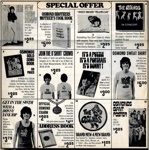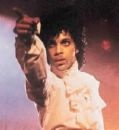 As our website returns from a winter hiatus, poll results are everywhere, and not just in Presidential politics. When I still voted in the Village Voice’s Pazz and Jop critics’ poll, I remember thinking how absurdly fast it seemed to rank the previous year’s best music in January. But this time, when Pazz and Jop followed the Idolator poll and dozens of other young rivals, it already seemed like old news. With a few variations, the top poll results roughly resembled the “year-end†list the now-defunct Stylus Magazine posted in late October.
As our website returns from a winter hiatus, poll results are everywhere, and not just in Presidential politics. When I still voted in the Village Voice’s Pazz and Jop critics’ poll, I remember thinking how absurdly fast it seemed to rank the previous year’s best music in January. But this time, when Pazz and Jop followed the Idolator poll and dozens of other young rivals, it already seemed like old news. With a few variations, the top poll results roughly resembled the “year-end†list the now-defunct Stylus Magazine posted in late October.
I can’t complain about multiple poll winner LCD Soundsystem, the brainy dance band that tossed off the best rip I’ve heard on New York’s Michael Bloomberg (“your mild billionaire mayor’s now convinced he’s a kingâ€). I’m also thrilled at the top-ten consensus for M.I.A.’s Kala, which gave a trans-global boom-boom-boom to those of us who have, like the National, spent too long feeling half-awake in a fake empire. Still, there’s a problem in treating lists like these as canons of coolness. They call to mind my favorite 2007 music review, which was so fake it’s real. The Onion reported that Pitchfork gave a rating of 6.8 to “musicâ€â€”not any one recording or genre, but its entire history. It seems music, while brilliant at times, is weighed down with too many “mid-tempo ballads,†and worse, “the whole medium comes off as derivative of Pavement.”
Maybe I’m just getting as cranky as the music geek in LCD’s earlier song “Losing My Edgeâ€â€”the guy who was “there at the first Can show in Cologne,†only to get upstaged by “the Internet seekers who can tell me every member of every good group from 1962 to 1978.†But I decided to avoid premature evaluations and go where nobody else seemed to be heading: 2006. With a year’s reflection, I wondered, how had my presumed favorites of a year ago held up, and what had I missed that meant more to me now? The results weren’t quite what I expected.
Continue reading Highway 2006 Revisited →

 Sometimes the simplest music hits you like a ton of bricks. Somewhere between Chopin and Sun Ra (in his more pensive moments) lie the gorgeous etudes of 87-year-old Ethiopian nun
Sometimes the simplest music hits you like a ton of bricks. Somewhere between Chopin and Sun Ra (in his more pensive moments) lie the gorgeous etudes of 87-year-old Ethiopian nun  As our website returns from a winter hiatus, poll results are everywhere, and not just in Presidential politics. When I still voted in the Village Voice’s
As our website returns from a winter hiatus, poll results are everywhere, and not just in Presidential politics. When I still voted in the Village Voice’s 
 Herbie Hancock’s tribute to Joni Mitchell “
Herbie Hancock’s tribute to Joni Mitchell “
 We can all breathe a sigh of relief now that last week’s Super Bowl managed to conclude without a Tom Petty wardrobe malfunction. Petty’s halftime set was solid enough, although Patriots fans would probably have substituted “Even the Losers (Get Lucky Sometimes)†for “
We can all breathe a sigh of relief now that last week’s Super Bowl managed to conclude without a Tom Petty wardrobe malfunction. Petty’s halftime set was solid enough, although Patriots fans would probably have substituted “Even the Losers (Get Lucky Sometimes)†for “ One of our oldest and dearest friends, who goes by the name Rinchen, is a devout Buddhist currently two thirds of the way through a three-year hitch in a monastery in the Santa Cruz mountains, where he is studying with the teacher he’s chosen for life, and practicing almost total silence. Rinchen has no access to the outside world — no phone calls, no newspapers, no internet, no television… and no music. The latter fact is particularly striking, as Rinchen is one of the deepest listeners we know – a man who could spend an entire day tapped into an 8-disc Cecil Taylor free improv set, then put on some Parliament or Missy Elliott and jam the night away. Rinchen’s music collection was breathtaking — before he sold it all to finance his silent expedition.
One of our oldest and dearest friends, who goes by the name Rinchen, is a devout Buddhist currently two thirds of the way through a three-year hitch in a monastery in the Santa Cruz mountains, where he is studying with the teacher he’s chosen for life, and practicing almost total silence. Rinchen has no access to the outside world — no phone calls, no newspapers, no internet, no television… and no music. The latter fact is particularly striking, as Rinchen is one of the deepest listeners we know – a man who could spend an entire day tapped into an 8-disc Cecil Taylor free improv set, then put on some Parliament or Missy Elliott and jam the night away. Rinchen’s music collection was breathtaking — before he sold it all to finance his silent expedition.